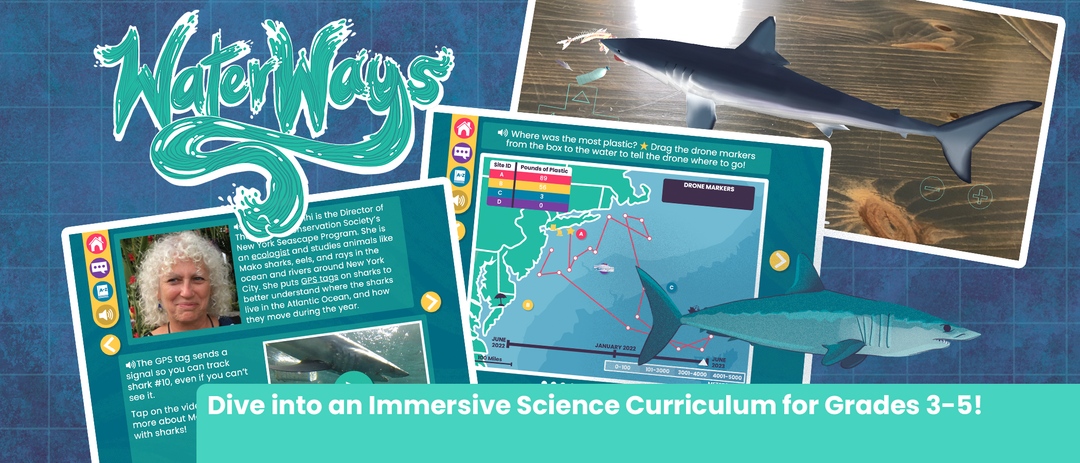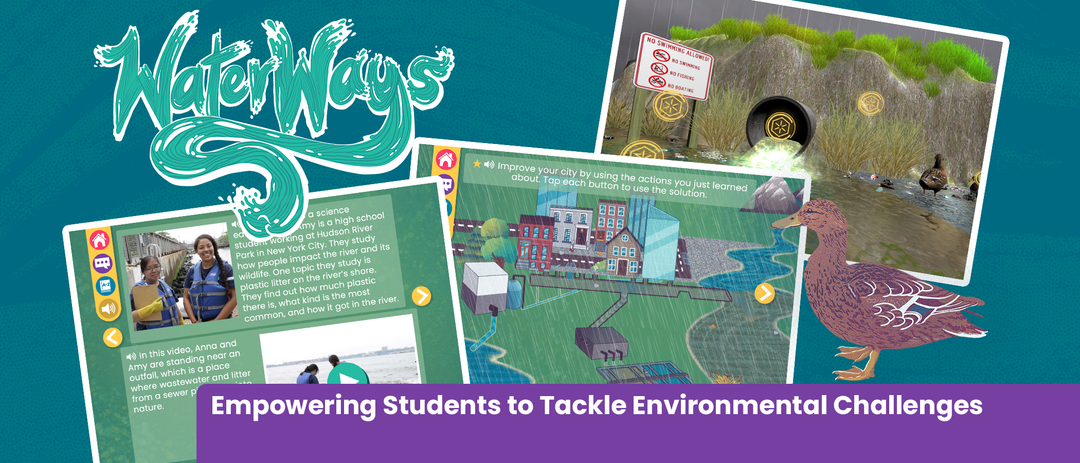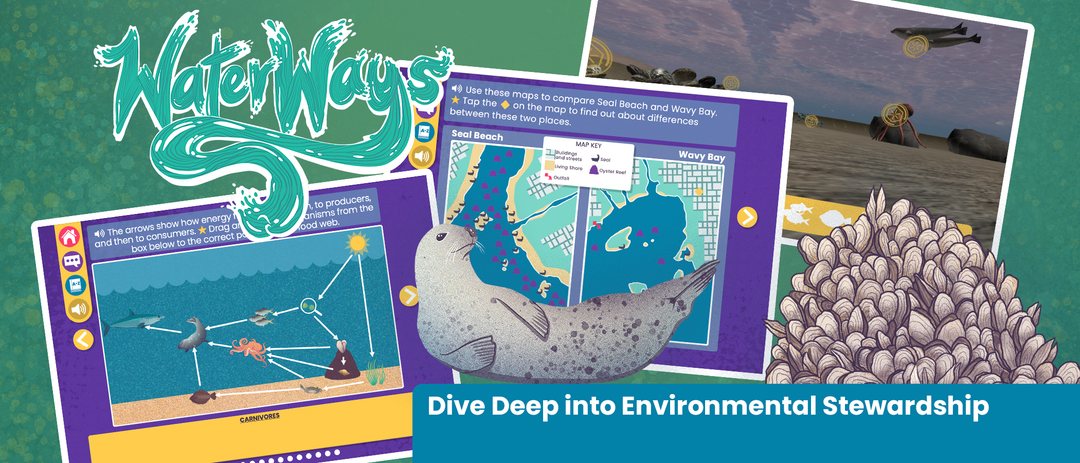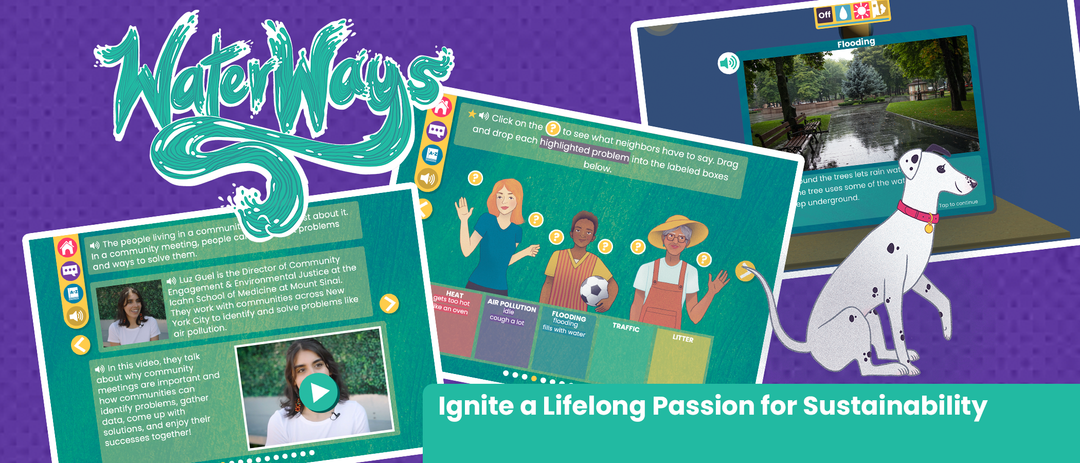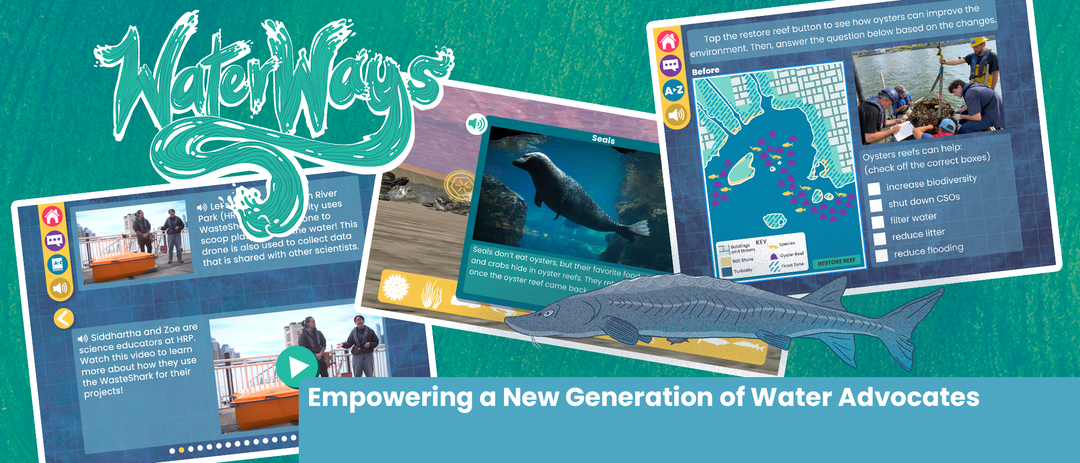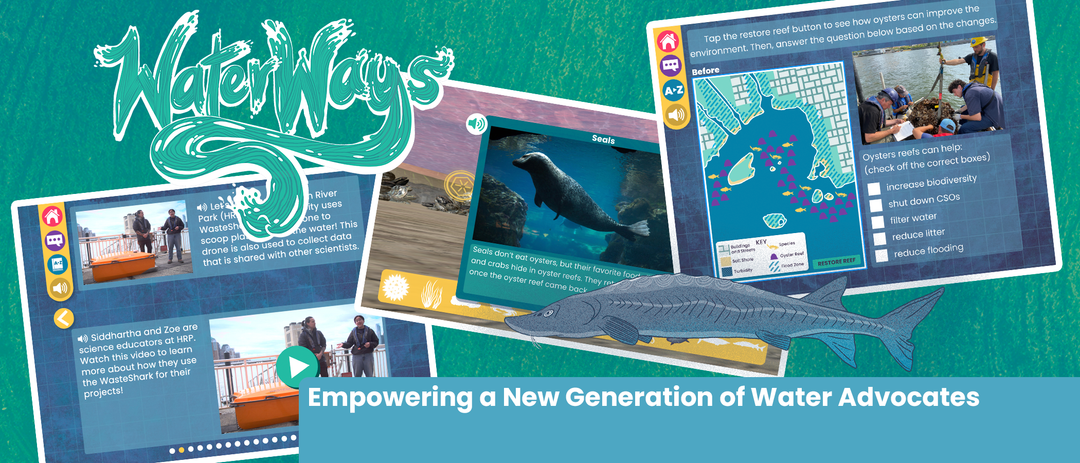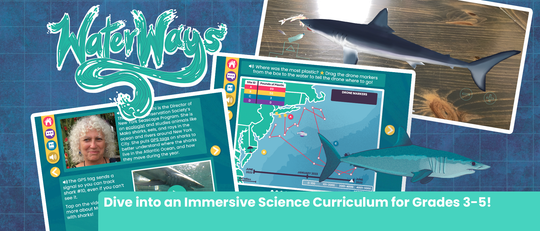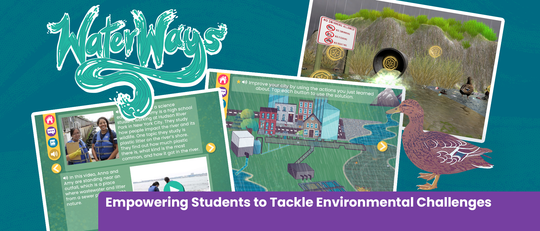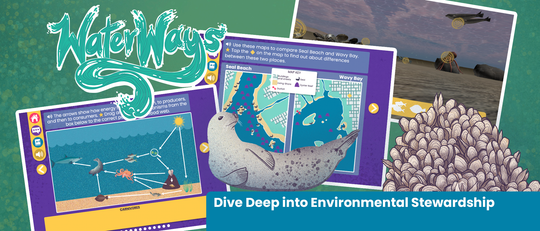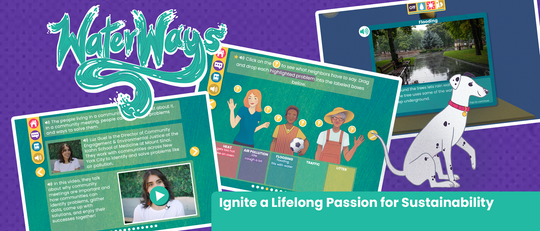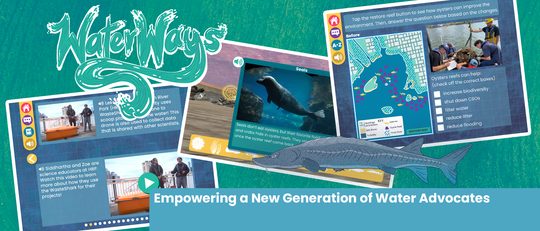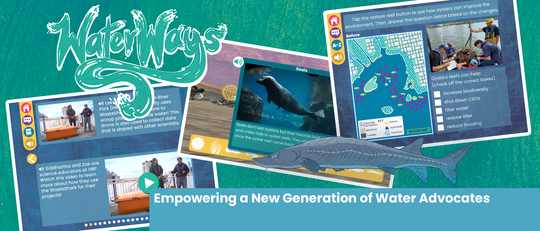Immersive digital experience
WaterWays - Complete
Regular price$14.99
Become a Chimhe City scientist and investigate problems like plastic pollution, air and water quality, Urban Heat Island effect, and marine biodiversity. With these immersive and interactive activities, students will learn about water use and water stewardship and identify what they must do to heal the environmental health of neighborhood communities.
Developed in collaboration with the Wildlife Conservation Society, Hudson River Park and Mount Sinai's Transdisciplinary Center for Early Environmental Exposure, with funding support from the National Institutes of Health.
Complete includes all five modules. Each module includes:
- A personalized digital science journal and an augmented reality experience, accessible by phone or browser using webVR.
- 40 minutes of interactive activities where students are scientists engaged with water science and water stewardship.
- Assessment dashboard for educators to monitor and scaffold student learning
Brief Description of each module:
- Sharks & Plastic: See a shark and help understand why they’re vomiting plastic by hypothesizing and observing just how the plastic made it into their stomach.
- Water's Journey: Help prevent littering, conserve water, and soak up rainwater with green spaces in the process of learning the negative effects of combined sewer overflows, or CSO.
- Restoring Ecosystem: Learn about the helpfulness of oyster reefs when it comes to water quality, flooding, and biodiversity.
- Nature-based Solutions: Meet your neighbors and equip your neighborhood against environmental threats like heat, air pollution, and flooding.
- Evaluating Progress: Review the changes you made throughout WaterWays and create a poster with your findings about how water and nature are connected.


